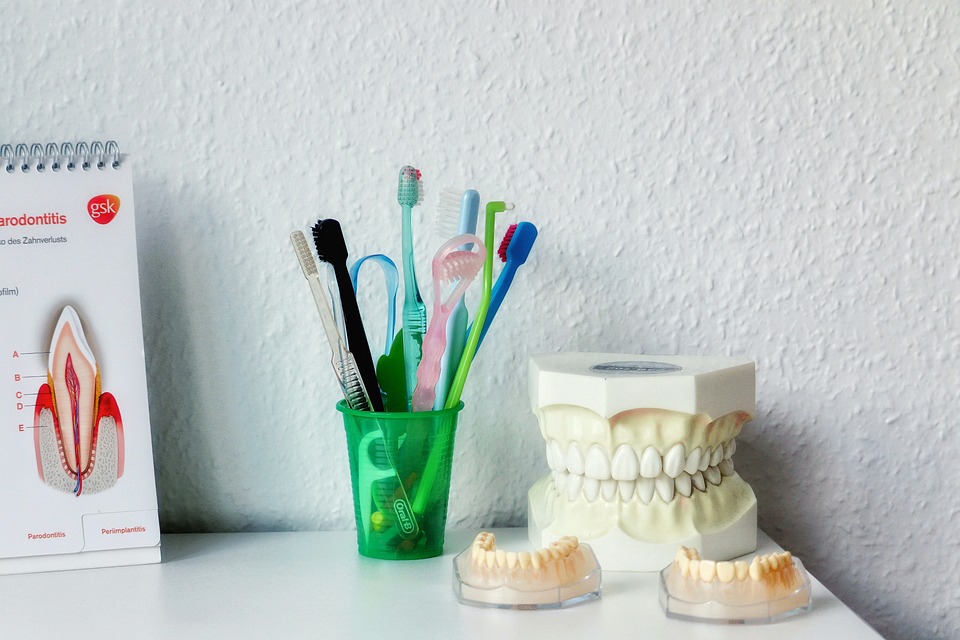Things Dentists Wish You Knew
I RECENTLY VISITED MY DENTIST, and it reminded me how we could improve our dental health. Today we focus on three things dentists wish you knew.
Dental health is important for several reasons:
- Oral health affects overall health: Poor dental health can lead to several health problems, such as heart disease, stroke, and diabetes.
- Prevents cavities and gum disease: Good dental hygiene practices, such as brushing and flossing regularly, can help prevent cavities and gum disease.
- Maintaining healthy teeth and gums: Regular dental checkups can help maintain healthy teeth and gums, preventing tooth loss and other oral health problems.
- Affects appearance: A healthy and attractive smile can boost self-confidence and help individuals feel more comfortable in social situations.
- Helps with speech and digestion: Teeth play an important role in speech and digestion. Poor dental health can lead to problems with both.
Taking care of your dental health is important for maintaining good overall health and quality of life.
Three things’ dentists wish you knew
1. You don’t need an electric toothbrush.
You know the drill: Brush your teeth at least twice daily. The consensus recommendation is for individuals to brush for two minutes twice daily with a soft bristle toothbrush. Use the brush against the gumline at a 45-degree angle.
The American Dental Association adds the following:
- Replace toothbrushes every three to four months (or more frequently if the bristles are visibly frayed or matted) is important to Oral Hygiene.
- Either powered or manual toothbrushes can be effective.
Tien Jiang, an oral health policy and epidemiology instructor at the Harvard School of Dental Medicine, writes in the New York Times: “For the more enthusiastic amongst us, a pressure sensor on an electric toothbrush can be helpful. Brushing with too much force is one of the leading causes of receding gums.”
2. Skip the activated charcoal.
Have you seen toothpaste with powdered activated charcoal? Advertisers offer that the products are natural teeth whiteners.
Did you know there is no evidence that charcoal-containing (or baking soda-hydrogen peroxide) dental products effectively bring a shine to your smile? That’s the conclusion of researchers publishing in the 2017 issue of the Journal of the American Dental Association.
Moreover, charcoal toothpaste use has some perils:
- Charcoal toothpaste is too abrasive for daily use as it can wear down teeth’s enamel. When this happens, the dentin (calcified yellow tissue) can be exposed, making the teeth more sensitive.
- Most charcoal kinds of toothpaste lack fluoride. Some studies suggest that charcoal toothpaste use can increase tooth decay.
- Charcoal can stain teeth, and its effects on dental restorations remain unknown.
Finally, we don’t know the long-term safety of using charcoal toothpaste. What’s a better choice for whitening? Several whitening toothpastes have the seal of the American Dental Association Seal of Acceptance.
3. Your gums shouldn’t bleed when you floss.
I am proud of the fact that I floss daily. If I miss several days, I sometimes see a small blood volume when I resume. After getting back into the flossing routine, the bleeding ceases.
If your gums bleed for a prolonged time, please see your dentist. Finally, if you have relatively large gaps between your teeth, a small, skinny interdental brush can reach the hidden places where bacteria grow.
My take on oral hygiene
Good oral health is associated with better overall health. Those with gum (periodontal) disease have a 1.28-fold increase in heart attack risk.
A Japanese study of over 1,500 older adults discovered tooth loss was a risk factor for dementia. A separate group of researchers concluded that tooth loss “may be a predictor” of dementia. Of course, this is not high-level evidence of causality. Still, maintaining good oral hygiene makes sense.
The information I provided in this blog is for educational purposes only and does not substitute for professional medical advice. Please consult a medical professional or healthcare provider for medical advice, diagnoses, or treatment. I am not liable for risks or issues associated with using or acting upon the information in this blog.
Thanks for reading “ Things Dentists Wish You Knew.”
#healthfitwellhub.

